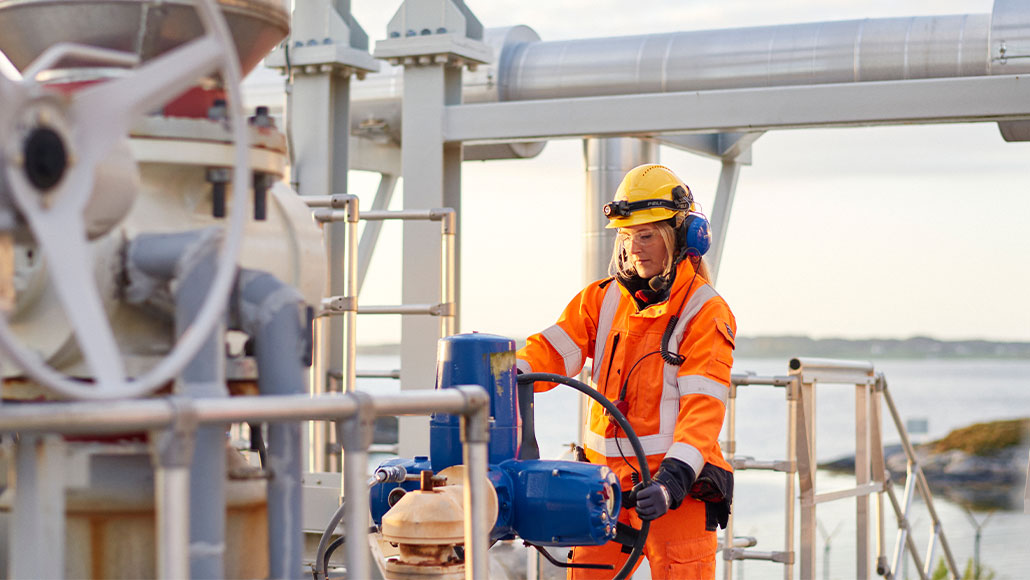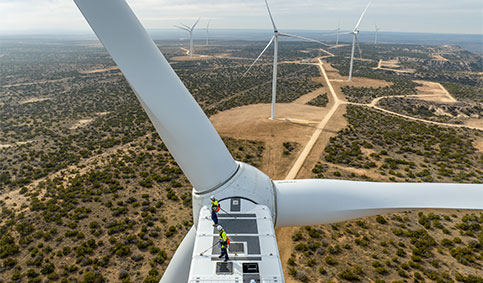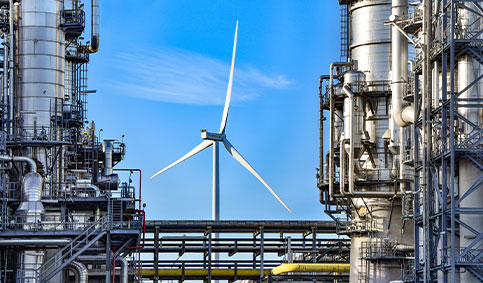Oil and gas production
We work with governments, communities and our partners to help develop policy frameworks and regulatory mechanisms that support the production and supply of oil and gas with fewer emissions.
We believe that regulatory frameworks should cover the full project life cycle: from licensing and exploration to decommissioning. We believe that these frameworks should encourage the reduction of emissions from oil and gas production, be aligned with net-zero pathways and provide long-term fiscal and regulatory predictability.
Reducing emissions from oil and gas operations
In 2023, we worked with New Producers for Sustainable Energy, an association of 22 member countries and a network that brings together government officials, national oil company executives, subject matter experts and civil society representatives.[1] We shared our perspectives on successful examples of policy to support emissions reductions and sustainable operations. These include reductions in greenhouse gas emissions, development of local skills as part of a just transition, energy efficiency, CCS, and repurposing of infrastructure. This work builds on our involvement in the OECD’s Equitable Framework and Finance for Extractive-based Countries in Transition (EFFECT) process, which has developed a range of policy options and regulatory best practices to facilitate the energy transition while maintaining energy security.
Decommissioning operations
Shell advocates responsible decommissioning practices when oil and gas operations reach the end of their productive lives. This includes working with governments and regulators to ensure that industry has the financial and technical capabilities to plan, fund and execute decommissioning projects.
In 2023, we worked with governments and industry associations in jurisdictions such as Australia, the USA and the EU on the development of decommissioning policy frameworks. The aim is to ensure that companies meet their liabilities for decommissioning, reducing the risk of default. We believe that credit strength should be a key consideration when designing decommissioning regulations. We also advocated increased clarity around the transfer of liabilities as part of divestments or lease assignments.
In the USA, Shell worked with the American Petroleum Institute (API) to provide our perspectives on the Biden administration’s proposed financial assurance and bonding rule for the Gulf of Mexico. This aims to clarify the regulatory process for deciding whether supplementary financial assurance needs to be made available by offshore operators when offshore asset ownership is transferred.
In Australia, we worked through the Australian Energy Producers (AEP) association on the development of a new offshore policy for decommissioning.
At an international level, we worked with the International Association of Oil & Gas Producers (IOGP) on approaches and technical considerations for various decommissioning solutions, such as retention of habitats, and the dismantling of floating production storage and offloading units.[2]

[1] www.newproducersgroup.online
[2] www.iogp.org/workstreams/environment/decommissioning/decommissioning-committee-overview/









